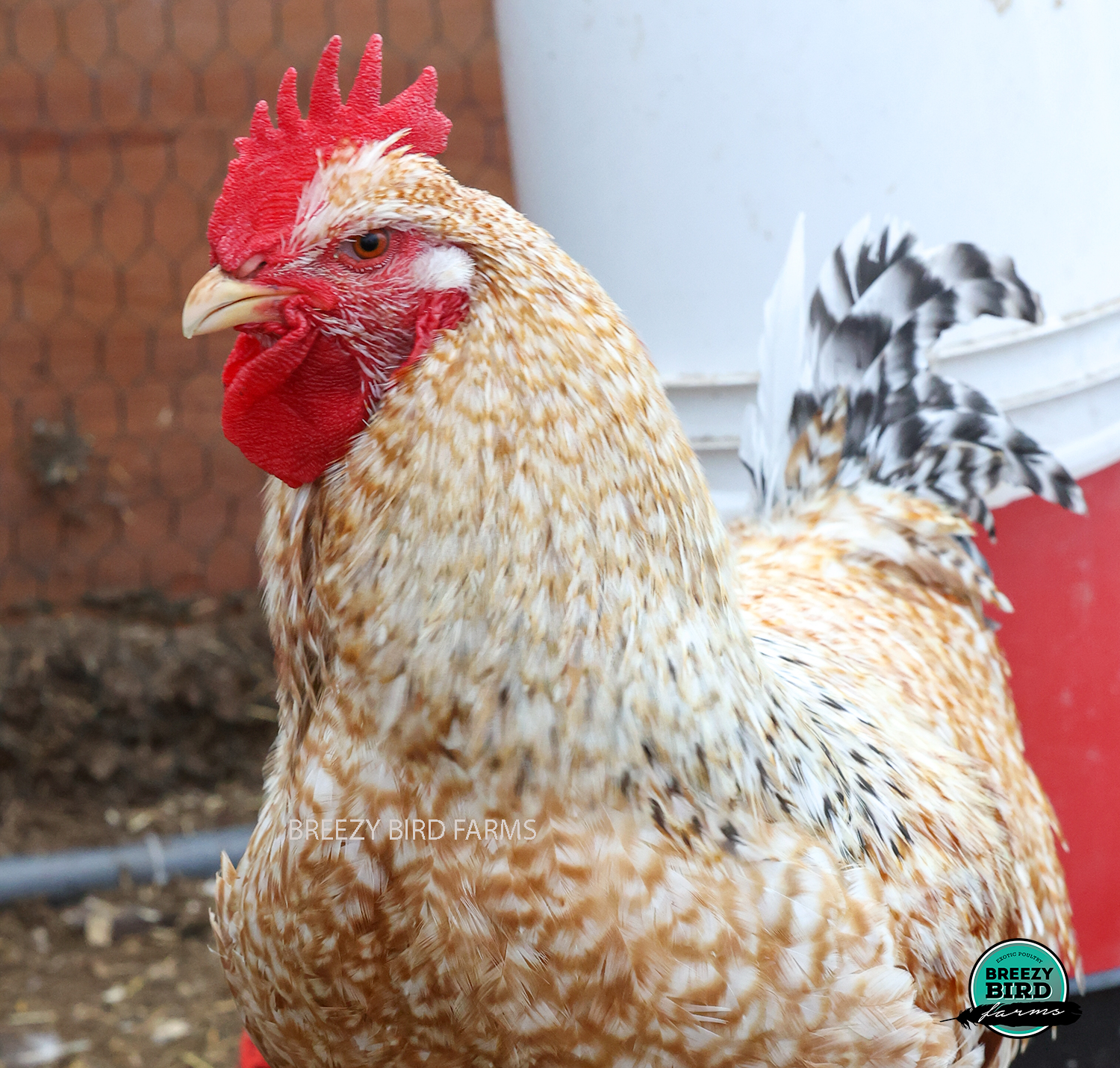BASQUE
Eggstatcic
Basque chickens, also known as "Gallin Vasca" or "Euskal Oiloa," originate from the Basque region of Spain and parts of France. This breed has deep historical roots, with evidence of its existence dating back several centuries. The Basque people developed these chickens primarily for their dual-purpose qualities, providing both meat and eggs.
Cultural Significance:
Basque chickens have been an integral part of the agricultural landscape in the Basque region for centuries. They were traditionally raised by local farmers for both meat and eggs, contributing to the self-sufficient lifestyle of the Basque people.
Diversity in the Region:
The Basque Country is known for its unique geography, with a mix of mountainous terrain and fertile valleys. This diversity allowed for the development of various local chicken breeds, including the Basque chicken. Each type adapted to the specific environmental conditions, leading to distinct traits among the birds.
Historical Breeding Practices:
Basque farmers practiced selective breeding for traits that suited their needs, such as hardiness, egg production, and good foraging abilities. This emphasis on adaptability and resilience helped the breed thrive in the region’s varied climate.
Near Extinction and Conservation Efforts:
Like many traditional breeds, Basque chickens faced a decline in numbers due to industrial farming practices and the rise of commercial poultry breeds. However, in recent years, there has been a movement to preserve this breed as part of cultural heritage and biodiversity. Conservation efforts have helped revive interest in Basque chickens among poultry enthusiasts and sustainable farmers.
Unique Characteristics:
Basque chickens are known for their ability to forage effectively and their adaptability to different environments. They are often kept in free-range systems where they can roam and engage in natural behaviors, further enhancing their role in sustainable agriculture.
Culinary Heritage:
In the Basque region, chickens are not just livestock; they play a part in local cuisine. Traditional dishes often feature chicken, showcasing the breed’s value beyond mere production.
Overall, the history of Basque chickens is intertwined with the cultural and agricultural practices of the Basque people, highlighting the importance of preserving traditional breeds in the face of modernization. If you have more questions or need further details, feel free to ask!
Basque Chickens Overview
Origin:
Basque region of Spain and parts of France
Weight:
Hens: 4.5-6 lbs
Roosters: 6-7.5 lbs
Appearance:
Body Type: Medium-sized with a robust build
Feathering:
Soft, dense feathers; color variations include black, white, and red
Comb:
Single comb, medium to large in size
Egg Production:
Egg Color: Brown eggs
Egg Size: Medium to large
Production Rate: Approximately 3-5 eggs per week
Temperament:
-Generally calm and hardy
-Good foragers
Hardiness:
Well-suited to a range of climates; resilient in both hot and cold weather
Personality Traits:
-Friendly and sociable
-Adaptable and intelligent
-Broodiness:Some hens may exhibit broodiness.
- Friendly and Sociable: Basque chickens are known for their gentle and friendly nature. They tend to get along well with other birds and are comfortable around humans.
- Curious and Active: These chickens are inquisitive and enjoy exploring their surroundings. They are active foragers and thrive in environments where they can roam freely.
-Adaptable: Basque chickens can adapt well to different living conditions, whether in free-range setups or more confined spaces.
- Calm Demeanor: Their calm temperament makes them easy to handle, making them a good choice for families and beginners in poultry keeping.
- Intelligent: They are smart birds that can learn quickly, making them relatively easy to train.
© Copyright Breezy Bird Farms